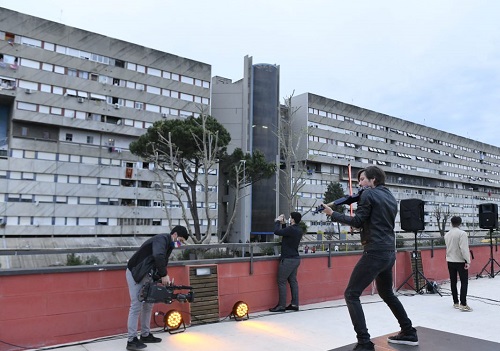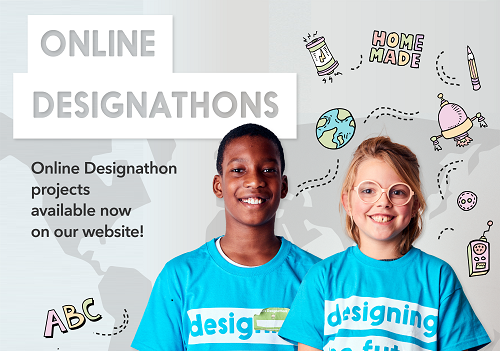COVID-19 came unexpectedly and hit the world hard. With the pandemic, from one day to the next, humanity found itself in the midst of a crisis that still raises big questions around how we protect each other, how we deal with isolation, how we manage economic implications and many more. Answers to these questions can be provided by those who have been working on the ground with communities even before the COVID crisis: social entrepreneurs. The next question then is: how do we best support them in their work?
What is Changemakers United?
The goal of Changemakers United is to make visible the solutions that social entrepreneurs develop for the COVID-19 pandemic and to support them and their organizations in these challenging times. The project was started by Ashoka Europe in April 2020 with the support of Zalando, the BMW Foundation and others.
In the months that followed, 20 Ashoka Fellows from 15 European countries worked with 25 mentors and 121 pro bono experts to develop their COVID-19 solutions in different areas – from communication and marketing to strategy development and legal advice. In May, Ashoka and its partners organized the “Changemakers United Online Summit”, which was attended by more than 1500 people from around the world. The first round of Changemakers United in Europe ended in September and a second round on a global level then started. With the support of Beiersdorf, social entrepreneurs from Africa, Latin America and Southeast Asia who develop COVID-19 solutions now go through a similar program.
Ashoka Fellow Massimo Vallati of Calciosociale organized live concerts in Italy to support communities during lockdown
What is the focus of Changemakers United?
The solutions of European social entrepreneurs focused on five main areas:
- providing health services and products as a direct response to the pandemic;
- protecting the most vulnerable groups (such as victims of domestic violence);
- developing educational models and tools for children and young people;
- providing reliable and accessible information;
- and finding solutions to the political and economic impact of the pandemic.
Some intermediary results: all 20 Ashoka Fellows in Europe adapted their services and products to the situation created by COVID-19, and nine Fellows even developed completely new ones as part of the project. More than 419 million people in 35 countries could be reached – directly and indirectly – through these solutions. “Without Changemakers United, I probably wouldn’t have dared to take this step towards internationalization,” says one of the Fellows in the survey conducted by Ashoka.
What have we learned so far?
The program generated many learnings about how to support social entrepreneurs in times of crisis. Here are a few reflections after almost one year of Changemakers United.
1. React fast, but make sure you can deliver
In a crisis such as the COVID-19 pandemic a fast response gains time especially for the immediate response to the crisis effects. Essential here is to find the partners that are agile and flexible enough to be able to make the necessary steps in due time. Not every funder and support organization can shift gears and directions so fast, so making sure that this is really possible in the implementation phase is important.
2. Move fast, but also move long-term
The development, adjustment and implementation of the new solutions of social entrepreneurs takes time. All the projects that they are working on are still ongoing and will require further support. The initial time frame of 6 months for Changemakers United was short and was therefore extended through additional program phases and formats. The feedback of social entrepreneurs included planning more time so that the mentoring and the measuring of results are not rushed and thus a lot less effective.
3. Each experience is different, accommodate for that
Overall, the experiences of each social entrepreneur in Changemakers United were very specific and depended on their type of solution, the relation with the mentors and experts, and their particular needs. In any matching process between advisors and social entrepreneurs there is a variable degree of compatibility. Some questions and issues that social entrepreneurs work on also take significant time to figure out. Additionally, the degree of investment both of pro-bono advisors and social entrepreneurs also depends on their other commitments and influences the outcome of the process. Being aware that such a support program cannot completely satisfy everybody’s needs to the fullest in a continuously changing crisis situation makes for a more realistic approach.
4. Manage expectations realistically
Which brings us to expectations. To avoid frustration, in the beginning there needs to be an honest discussion and estimation of time commitment necessary and achievable goals of the program. This can be particularly challenging, as even the organizing team cannot have very accurate information, especially when first piloting a new program. Our learning here is to prepare participants for more effort and time investment, rather than less. Such a process always ends up taking longer than initially thought.
5. Focus on target groups but don’t forget social entrepreneurs themselves
The COVID-19 pandemic raises financial and social impact challenges for the social entrepreneurs, but it also opens new opportunities for them to develop their organizations and services for their target communities. Changemakers United supported the social entrepreneurs with the expertise they needed, a network of peer support, and also visibility for their solutions. However, social entrepreneurs also signaled that they needed support not just for their solutions, but also for their own personal and organizational processes that were challenging – budget restrictions, letting go of staff, etc. Making these two support levels explicit from the beginning can ensure better results of the program overall.
6. Money still matters
Social entrepreneurs’ feedback also indicated to not underestimate the financial component of the support needed. Changemakers United was initially set up primarily as a resource for improving COVID-19 related solutions and financial support for doing so is a key component of that. Although it is not everything when it comes to effective solution design, funding is an essential next step that every support program should keep in mind to facilitate even if indirectly.
This article is based on the Changemakers United Europe Evaluation Report developed in October 2020. For more information please contact Alexandra Ioan (Head of the Ashoka Learning and Action Center) at aioan@ashoka.org and view the full report here.
Alexandra Ioan is a young professional and researcher focusing on the development of effective civil society organizations and governance processes. She leads the Learning and Action Center at Ashoka Europe and is a postdoctoral researcher at the Hertie School in Berlin. Alexandra focuses on translating research findings into concrete policy and organizational action with the purpose of effectively addressing social issues. She holds a PhD in Governance from the Hertie School and has conducted research at the Stanford Center on Philanthropy and Civil Society, Stanford University among other institutions. LinkedIn @alexandraioan
Jana Gioia Baurmann has been with Ashoka Germany since beginning of 2020 and leads communication. Before joining Ashoka, Jana was editor of the economics section of the journal Die Zeit and worked for ZDF and 3sat, with a focus on foreign policy. She graduated from the German Journalist School in Munich, Germany.


